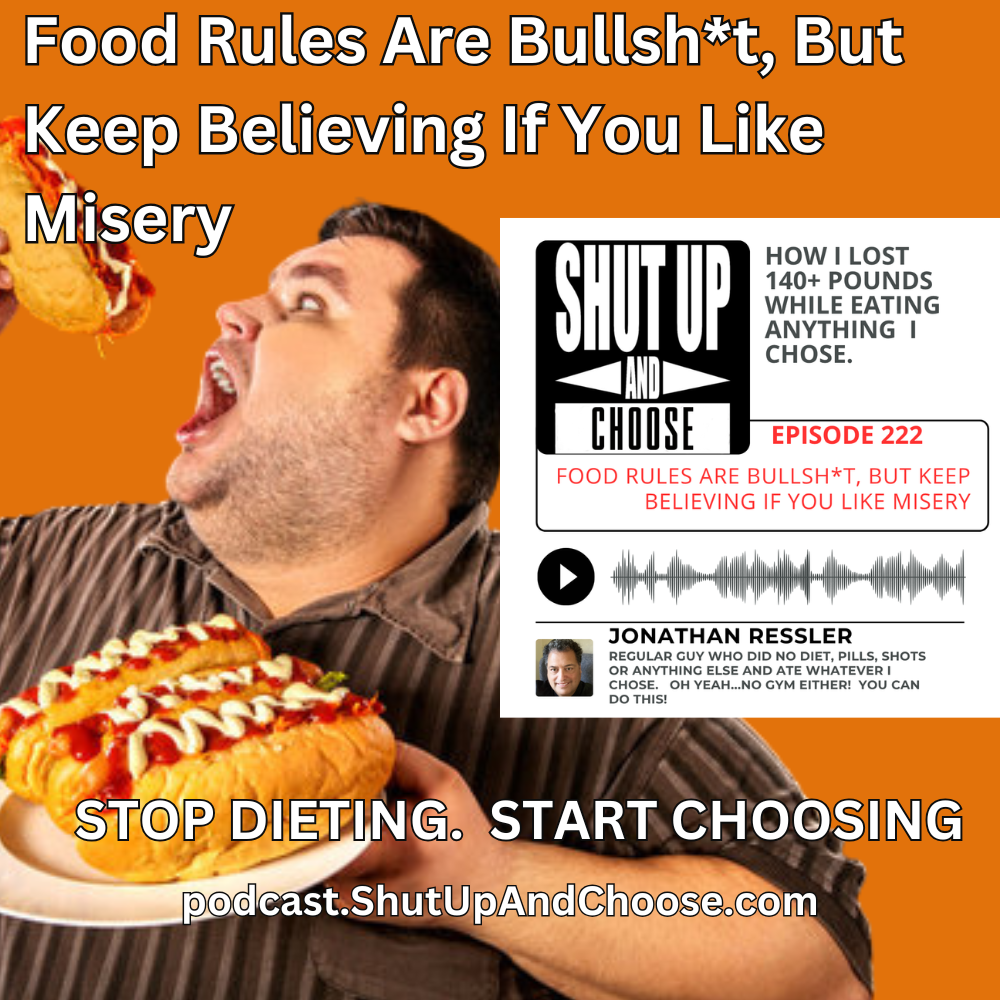Food Rules Were Meant to Be Broken
If you keep asking yourself “why can’t I lose weight” and the answer never sticks, food rules are a big reason.
Rules like “don’t eat after 7,” “salads are always healthy,” “fat makes you fat,” and “you earn cheat days” feel disciplined. They promise control. They give structure. And they quietly sabotage long-term weight loss.
Most people who struggle to lose weight are not lazy, broken, or lacking willpower. They are trapped in rigid systems that collapse the moment real life shows up. That collapse creates guilt. Guilt creates overeating. Overeating reinforces the belief that something is wrong with you.
This is the same trap explained in why you can’t lose weight. The problem is not information. The problem is obedience to rules that were never designed for real humans.
Food rules were meant to be broken. Not recklessly. Intentionally. Because sustainable weight loss is built on choice, not compliance.
Does Eating Late at Night Cause Weight Gain?
Eating late at night does not cause weight gain on its own. Total intake, food quality, stress, sleep, and consistency matter far more than the clock.
The myth persists because it creates an illusion of control. Follow the rule and you feel safe. Break it and you feel like a failure. That emotional swing is the real damage.
I used to skip dinner because I believed eating late would ruin everything. What actually happened was predictable. I ended up overeating later. Then came the shame spiral. Not because of food, but because I broke a rule.
Now I eat when it makes sense. I build the plate intentionally. Protein. Volume. Reasonable portions. That choice matters more than the hour.
Are Salads Always Healthy for Weight Loss?
Salads are not automatically healthy. They can support weight loss or quietly block it depending on what you put in them.
A salad loaded with fried toppings, heavy dressings, and hidden calories often delivers more energy and less satisfaction than a balanced meal people label as unhealthy.
The issue is not the salad. The issue is outsourcing judgment to labels instead of learning how food actually works in your body.
Weight loss improves when you stop asking “is this healthy” and start asking “does this choice support my goal right now.”
Is Skipping Breakfast Bad for Weight Loss?
Skipping breakfast is neither good nor bad by default. The outcome depends on how it affects your hunger, focus, and later choices.
Some people eat breakfast and feel stable all day. Others delay their first meal and feel calmer around food. Both can work. Blindly following either rule often fails.
The real skill is testing. Observe your energy. Notice your appetite later. Adjust. This is how people stop restarting and start progressing.
Why Clean Eating Often Leads to Binges
Clean eating sounds virtuous. It also creates a moral hierarchy that wrecks consistency.
When food becomes clean or dirty, eating becomes a character judgment. One slip turns into a collapse. That cycle keeps people stuck for years.
Whole foods matter. So does flexibility. Sustainable weight loss comes from systems you can repeat under pressure, not purity streaks that end in rebellion.
Does Eating Fat Make You Gain Weight?
Dietary fat does not automatically cause weight gain. Poor portion awareness and ultra-processed food patterns do.
Quality fats support satisfaction, hormones, and appetite control. Removing them entirely often drives overeating later.
The goal is inclusion with intention. Not elimination driven by fear.
Why Cheat Days Ruin Weight Loss
Cheat days teach one lesson. Restrict hard. Then lose control.
That pattern reinforces binge behavior and keeps people cycling between discipline and regret. It never builds trust with food.
When flexibility exists inside the week, cravings lose power. Consistency improves. Weight loss stops feeling fragile.
How This Explains Why You Can’t Lose Weight
If you feel stuck, it is rarely because you do not know enough. It is because your system collapses under normal life conditions.
Rules break. Choices adapt.
Weight loss lasts when daily decisions align with reality. Not with fantasy versions of perfect behavior.
Frequently Asked Questions
Do food rules help with weight loss?
Food rules create short-term compliance and long-term failure. They do not build skill or consistency.
Is eating late at night bad for fat loss?
No. Overall intake and habits matter far more than meal timing.
Why do I lose weight and then gain it back?
Because rigid systems break under real life. Sustainable results come from adaptable choices.
I did not lose 140 pounds by following rules. I lost it by learning how to choose under pressure, stress, and normal life.
If you want a deeper breakdown of the real reasons people stay stuck, start with why can’t I lose weight. This page is one of the answers.

